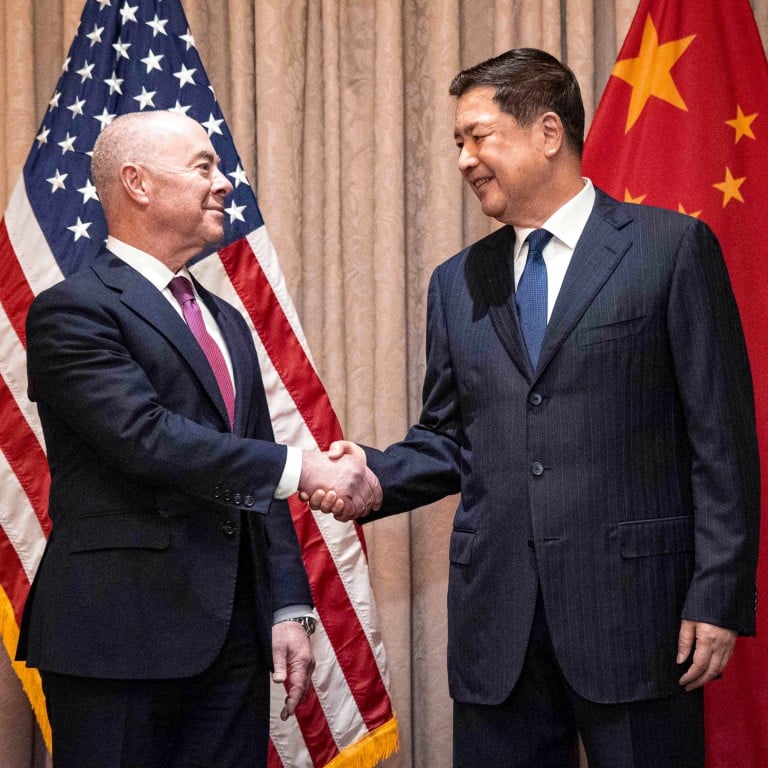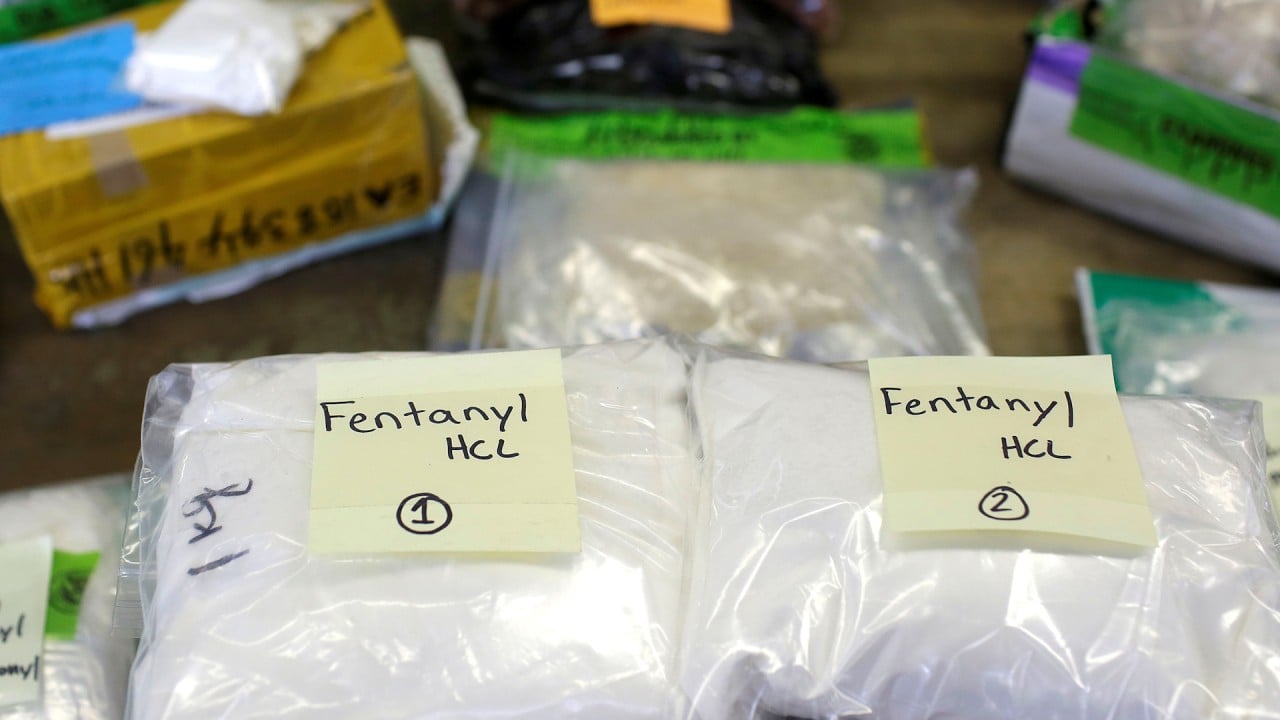
China urges US to ‘stop harassing’ its students at the border ‘for no reason’
- Call from Wang Xiaohong, China’s public security minister, comes during talks with US homeland security chief in Vienna on drug control cooperation
- US must ensure ‘fair entry treatment and full dignity’ for Chinese citizens, Wang tells Alejandro Mayorkas in talks labelled as ‘constructive’
China has asked the United States to end the “unwarranted harassment” of its students, following renewed reports of interrogation and deportation at a key US airport.
According to state news agency Xinhua, Wang urged the US “to stop harassing and interrogating Chinese students for no reason, and ensure that Chinese citizens enjoy fair entry treatment and full dignity”.
He also said Washington should “lift visa restrictions on relevant Chinese institutions and personnel”, Xinhua reported.
Xinhua reported earlier this month that at least 11 Chinese students had been deported or had their visas cancelled on arrival since that summit.
Eight of those cases took place at Washington Dulles International Airport, with some students detained for more than 10 hours and barred from contacting anyone during that time, according to a statement from the Chinese embassy.
Washington should “take practical and effective measures to ensure the safety of Chinese diplomatic and consular institutions and personnel in the US”, Wang told Mayorkas.
This included Chinese students with valid papers, who had been subjected to “politically motivated” law enforcement, involving “abusive suppression and persecution, frequent interrogations, detentions, forced confessions, inducements and even deportations”, a ministry spokesman said.
China slams US for ‘persecuting’ Chinese students over national security
Wang’s remarks on the treatment received by Chinese nationals at US borders were not mentioned in the Department of Homeland Security’s readout of the meeting, which focused on cooperation with Beijing in the fight against the fentanyl crisis.
Fentanyl is a highly addictive synthetic opioid 50 times more potent than heroin, and killed some 70,000 Americans last year. Washington alleges that China is the main source of fentanyl and fentanyl-related substances trafficked into the US – a claim denied by Beijing.
During Sunday’s talks in the Austrian capital, Wang urged the US to correct its “erroneous approach” of placing China on a list of major “drug source” countries or transit points, saying he hoped that obstacles to cooperation on narcotics control and law enforcement would be removed.
Wang and Mayorkas also met virtually in early January, shortly before the launch of a bilateral counternarcotics working group. The group aims to counter the “global manufacturing and trafficking of illicit synthetic drugs, including fentanyl”, the White House said on January 30.
The body’s creation was another sign of thawing diplomatic ties after Xi and Biden agreed to dial back tensions at their summit three months ago.
The US statement on the latest Wang-Mayorkas meeting said the two sides discussed “the steps needed to combat the spread of precursor chemicals and the transnational criminal organisations that profit off the production, distribution, and sale of illicit synthetic drugs”, as well as cooperating in the “fight to protect children from online sexual exploitation and abuse”.


